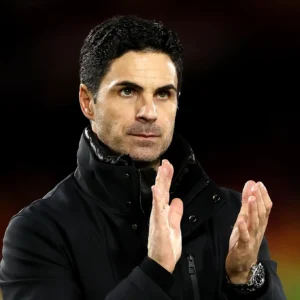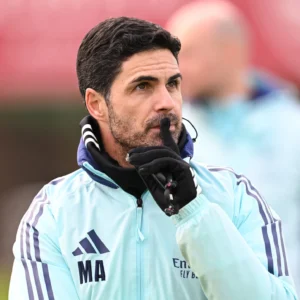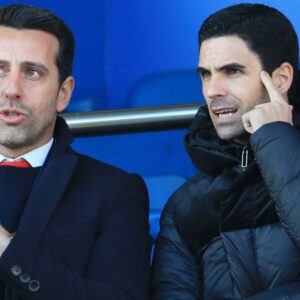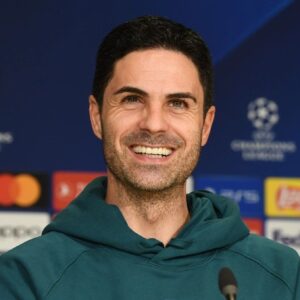
Last January, the spotlight was fiercely on Arsenal’s attack as concerns mounted over their inability to convert chances into goals. The team, under Mikel Arteta, was visibly struggling in the final third, a period marked by a particularly barren spell over the festive season where they managed just one goal across three matches against West Ham, Fulham, and Liverpool.
The narrative of Arsenal’s offensive woes persisted into the transfer window with the club linked to several strikers. Ivan Toney was initially in their sights, but the move didn’t materialize, leading Arsenal to look elsewhere. This decision, in hindsight, was fortuitous. As 2024 progressed, Arsenal’s attack rejuvenated, especially evident during a formidable run in February and March where they clinched six consecutive victories, netting an impressive 26 goals. However, this resurgence wasn’t enough to clinch the title.
Fast forward to the summer transfer window, Arsenal’s focus shifted to Benjamin Sesko, with intentions to bring the Slovenian striker from RB Leipzig. Despite their efforts, Sesko opted to extend his stay in Germany, signing a new contract that eliminated his release clause. Meanwhile, another potential signing, Victor Gyokeres, also slipped through Arsenal’s grasp. Gyokeres, who has been making waves under Manchester United’s incoming manager Ruben Amorim at Sporting, has been nothing short of spectacular since his move from Coventry City, where he was initially sold for a mere £1m by Brighton.
Gyokeres’s performance in the 2024/25 season has been remarkable, underlining why Arsenal might rue not securing his signature. With 23 goals in 17 appearances, including a hat-trick against Manchester City, he’s proving his worth on the big stage. Arsenal’s current lead attacker, Kai Havertz, has also been effective, scoring seven goals in 15 games, yet he doesn’t quite match Gyokeres’s prolific scoring rate.
Arsenal have their own Viktor Gyokeres
Amidst these tales of missed opportunities, Arsenal’s own loss in the striker department came from within. Chido Obi-Martin, a teenage sensation who left Arsenal’s academy, is now plying his trade at Manchester United. Described by analyst Ben Mattinson as “a monster on the pitch,” Obi-Martin’s departure from Arsenal before making a senior team appearance raises questions about the club’s strategy in nurturing young talent. His scoring record last season was phenomenal, with 28 goals in a nine-game span, showcasing a level of talent that Arsenal might now be missing.
The story of Arsenal’s recent transfer windows and youth development is one of what could have been. While the club has made strides in other areas, the narrative around their strikers remains a poignant reminder of missed opportunities and the potential pitfalls in not acting decisively in the transfer market or in youth retention. As Arsenal looks forward, the lessons from these episodes will undoubtedly influence their future strategies in both the transfer market and academy nurturing.






